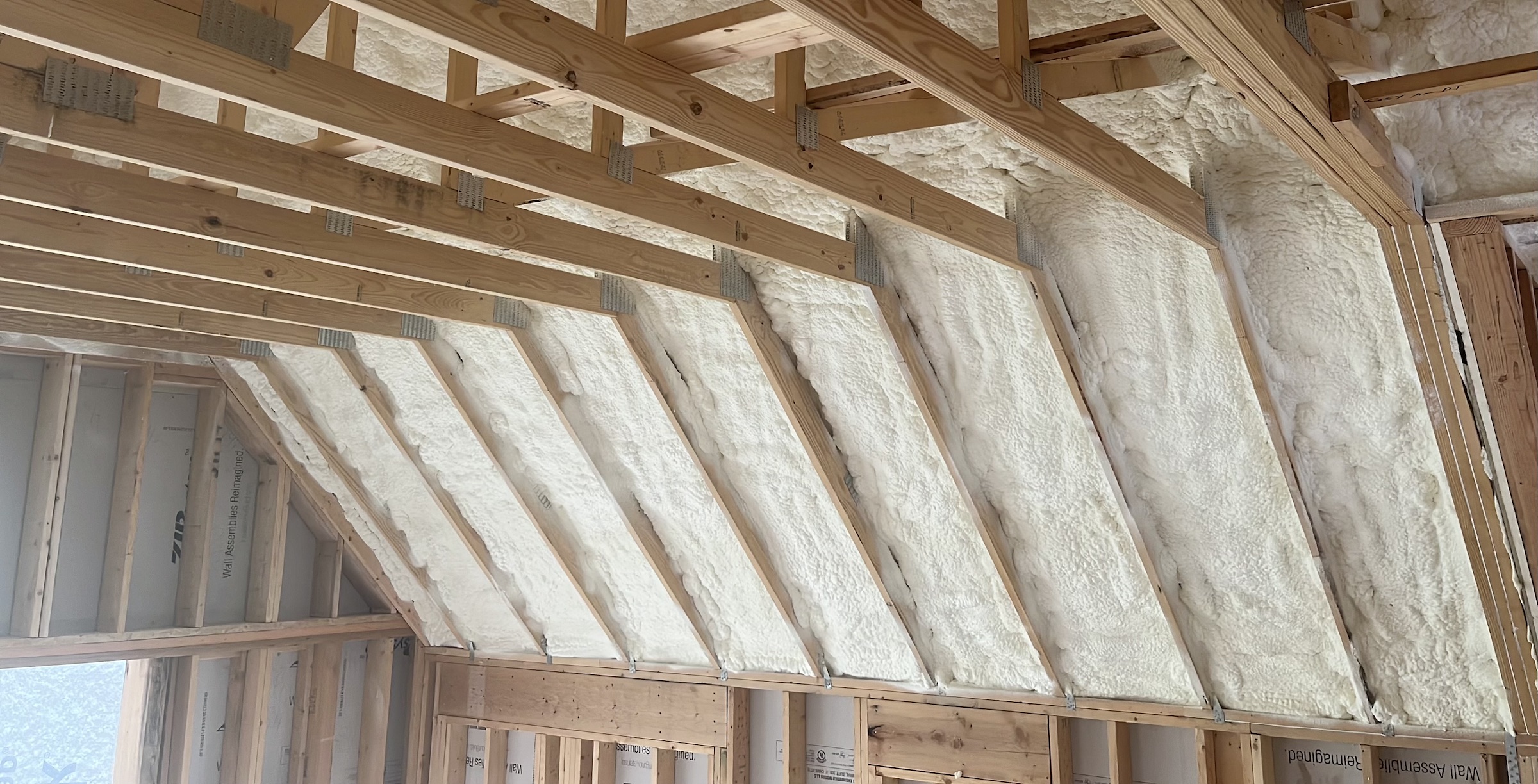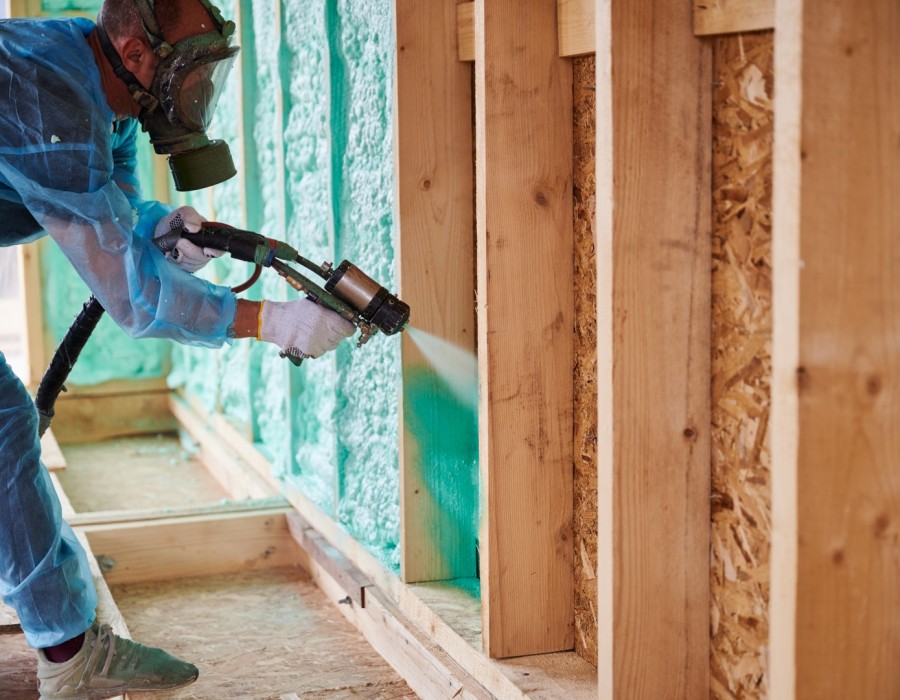When most homeowners think about insulation services in Boise, ID, their minds immediately go to R-value and keeping the house warm in the winter. While that’s certainly a big part of the picture, the true strength of modern insulation like spray foam lies in its less obvious, "hidden" benefits. Its power isn't just in slowing heat transfer; it's in creating an air seal, adding structural strength, managing moisture, and improving the air you breathe. These combined advantages work together to create a home that performs better on every level, from energy efficiency to overall comfort.
This is especially true in a place like Boise, with its distinct four-season climate featuring hot, dry summers and cold, snowy winters. Understanding these secondary benefits is key to seeing why an investment in modern insulation goes far beyond just a cozier winter. Drawing from the practical knowledge of building science experts, this article will uncover the powerful, often overlooked advantages that advanced insulation brings to a home.
More Than R-Value: The Complete Air Barrier
The single biggest difference between modern spray foam and traditional insulation like fiberglass batts is the air seal. While R-value measures an insulation's ability to resist conductive heat flow, it doesn't account for air leakage. Experts estimate that air leakage through a home's building envelope can be responsible for up to 40% of its heating and cooling costs. Tiny gaps around windows, pipes, electrical outlets, and framing all add up to a significant drain on your energy budget.
Spray polyurethane foam (SPF) is applied as a liquid that expands, filling every crack and crevice before it cures into a solid, continuous barrier. This effectively stops air infiltration and exfiltration. For a Boise home, this means:
- In Winter: Frigid winds can't push their way into your living space, and the warm air you've paid to heat stays inside.
- In Summer: Hot outside air is blocked from entering, and your air-conditioned cool air is kept from escaping.
This comprehensive air seal is the foundation for many of spray foam's other benefits, including energy savings and consistent indoor temperatures.
- Bonus Tip: After air sealing a home with spray foam, some homeowners notice their HVAC system runs less often but for slightly longer cycles. This is a sign of an efficient system that is no longer fighting constant air leaks.

Adding Strength to Your Home's Structure
One of the most surprising benefits of closed-cell spray foam is its ability to add structural integrity to a building. Unlike other insulation types that are simply placed into wall cavities, closed-cell foam is dense, rigid, and adheres tenaciously to everything it touches. When sprayed between wall studs or roof rafters, it essentially glues the framing members to the sheathing.
This process can increase a wall assembly's racking strength by a significant margin. This added rigidity helps the structure resist wind loads and other pressures, making the entire home feel more solid. While you may not "see" this benefit daily, it's a powerful background feature that contributes to the long-term durability of your house. For older homes, this can be particularly helpful in stiffening up the original framing.
A Proactive Approach to Moisture Control
Moisture is a home’s enemy, leading to rot, mold, and structural decay. Modern insulation offers a powerful defense. Closed-cell spray foam, in particular, acts as a vapor barrier. Its cells are sealed and do not allow water vapor to pass through. This is critically important for preventing condensation within walls.
In Boise's climate, this is relevant year-round. During cold winters, warm, moist indoor air tries to move toward the colder, drier outdoor air. If it passes through a permeable insulation like fiberglass and hits the cold exterior sheathing, it can condense into liquid water, soaking the insulation and wood framing. Closed-cell foam stops this vapor drive in its tracks, keeping the wall cavity dry. This hidden function is key to preventing long-term moisture damage and the associated health risks of mold.
How Different Insulations Perform Beyond R-Value
Creating a Healthier Living Environment
The air barrier created by spray foam does more than just stop conditioned air from escaping; it also blocks outdoor pollutants from getting in. Allergens like pollen, dust, and smoke from regional wildfires can infiltrate a home through the same small cracks that cause drafts. By sealing these pathways, spray foam significantly reduces the amount of particulate matter that enters your home.
Furthermore, because spray foam is an inert polymer, it doesn't provide a food source for mold or bacteria. Its moisture-blocking properties also help create an environment where mold cannot thrive. For families with allergies, asthma, or other respiratory sensitivities, this can lead to a noticeable improvement in indoor air quality and overall health.

Things to Consider Before Making a Decision
Upgrading to a modern insulation system requires careful thought. Here are some factors to weigh:
- Your Home's Specific Needs: Is your primary goal energy savings, soundproofing, or moisture control? The answer will help determine whether open-cell or closed-cell foam is the better choice for different areas of your home.
- Ventilation: Creating a very airtight home means you must control the indoor environment. A mechanical ventilation system, such as a heat recovery ventilator (HRV), may be necessary to ensure a constant supply of fresh air.
- Professional Installation is Key: The performance of spray foam is entirely dependent on the quality of the installation. It’s a complex chemical process that requires trained technicians with specialized equipment. Always choose a reputable, certified installer.
- Budgeting for Long-Term Value: Spray foam has a higher upfront cost than many traditional insulation products. It's best viewed as a long-term investment that pays dividends through lower energy bills, improved durability, and higher home comfort for years to come.
Questions About Modern Insulation's Power
How does spray foam differ from foam board insulation?
Spray foam is liquid-applied and expands to create a perfect, seamless fit in any cavity. Foam boards are rigid sheets that must be cut to fit, leaving seams and gaps that need to be sealed separately, making it harder to achieve a perfect air barrier.
Can you insulate an existing Boise home with spray foam?
Yes. Attics, crawl spaces, and rim joists are easily accessible in most existing homes. Walls can also be insulated using a "drill-and-fill" method, where small holes are drilled to inject the foam, which are then patched and finished.
Does spray foam lose its effectiveness over time?
No. Once cured, spray foam is a stable material that does not sag, settle, or decompose. It maintains its R-value and air-sealing properties for the life of the building.
Is modern insulation environmentally friendly?
Many modern spray foam products are made with renewable materials like soy or recycled plastics and use blowing agents that have zero ozone depletion potential. Its ability to drastically reduce a home's energy consumption also lowers its overall carbon footprint.
How does it improve summer comfort specifically?
In Boise, a major source of summer heat gain is the attic, which can reach extremely high temperatures. By insulating the underside of the roof deck with spray foam, you can prevent that radiant heat from penetrating your living space, keeping the entire home cooler and reducing the load on your air conditioner.
A Smarter Investment in Your Home
The hidden powers of modern insulation installation redefine what it means to have a high-performing home. By looking beyond simple R-value, homeowners in Boise can see how a single upgrade can deliver a stronger, healthier, and more energy-efficient house. The benefits of a complete air seal, moisture control, and added structural integrity work together to provide comfort and savings that traditional insulation simply can't match.
Getting a Professional Evaluation
To truly understand how modern insulation can impact your specific property, a professional assessment is invaluable. Experienced installers can identify critical areas for improvement and recommend the right products for your goals and budget. For homeowners in the region looking for expert guidance, a company like Nevada Urethane provides comprehensive insulation services. Their team can be contacted for a consultation by phone at (775) 500-0024 or via email at [email protected].
Reviewer: Maria Lopez offered detailed feedback after reviewing this post. Her 10 years of experience in spray foam work helped guide the tone and suggestions toward realistic strategies.






Comments